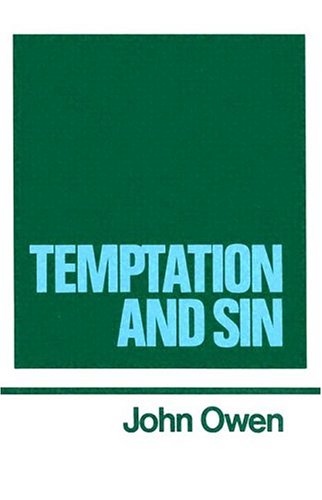A Brief Book Summary By Books At A Glance
By Clay Werner
About the Author
John Owen (1616-1683) was an English theologian and is considered one of the greatest European theologians to have lived. He was educated and taught at Oxford, was a chaplain in Cromwell’s army, and a pastor.
Overview
In this practical treatise of Owen’s, he seeks to understand the power of indwelling sin in the believer. He’ll explain its location in the heart, it’s nature as enmity towards God, and its opposition to God and deceit of the believer, especially how it works to blind the mind, entangle the affections, and enslave the will. He will also show how God obstructs sin, and why sin often erupts in the life of the believer, leading many to decline in grace. Throughout, he also gives counsel on how to fight against indwelling sin’s power and deceit.
Contents
Chapter 1: The Law of Sin
Chapter 2: The Power of the Law of Sin
Chapter 3: The Location of Indwelling Sin- the Heart
Chapter 4: The Nature of Indwelling Sin- Enmity Towards God
Chapter 5: The Actions of Indwelling Sin- Turning Away in Loathing
Chapter 6: The Actions of Indwelling Sin: Opposition (Two Ways It Opposes)
Chapter 7: The Actions of Indwelling Sin: Opposition (Two More Ways It Opposes)
Chapter 8: The Deceit of Sin and the Mind
Chapter 9: Indwelling Sin’s Opposition to Prayer and Meditation
Chapter 10: Deceitful Diversion of the Mind Away from Duty and Towards Sin
Chapter 11: Deceit and the Affections
Chapter 12: Deceit and the Will
Chapter 13: How God Obstructs Sin
Chapter 14: Eruptions of Sin
Chapter 15: Declining in Grace
Chapter 16: The Power of Sin as Seen in Non-Believers
Chapter 17: The Power of Sin Seen in Its Opposition to the Law
Summary
Chapter 1: The Law of Sin
Owen begins his treatise by showing that there are four things observable from Romans 7:21:
First, indwelling sin is called a law. ‘Law’ can be understood in two ways- either as a directive rule or as an ‘operative effective principle.’ In light of this, Owen’s first observation is that there is an “exceeding efficacy and power in the remainders of indwelling sin in believers, with a constant working towards evil.
Second, Paul found this law in himself. Though he had been told about it, now he knew it experientially. Owen’s second observation is that all believers experience the power of indwelling sin, however, the less it is felt the more they are under its power.
Third, Paul wanted to do good. God, by his grace, has given believers a ‘habitual inclination in their will’ towards what is good. The third observation is that by grace, God keeps in believers ‘a constant and ordinarily prevailing will of doing good,’ despite the power of sin to the contrary.
Last, the law of sin is present and active. Because the ‘will to do good’ is a habitual resides in the heart of the believer, there are times when this principle must be put into action, especially when sin opposes it and seeks to incline us towards evil. This is Owen’s fourth observation. Believers must be reminded that our enemy is not only upon us, but within us.
Chapter 2: The Power of the Law of Sin
In this chapter, Owen explores what it means to call indwelling sin a ‘law.’ He’ll begin with general comments and then move towards a particular understanding of it. In general, there are two things that attend every law- dominion and an ability to provoke those that oppose it into actually doing what it requires. Dominion consists of either a moral and authoritative law (like the law of God) or a real and effective dominion (the law of sin). Though sin has been weakened, its nature hasn’t been changed and it remains powerful. Next, a law possesses an ability to provoke those that oppose it into actually doing what it requires. It has this ability by putting forward rewards for obedience and punishments for disobedience. The law of sin promises the reward of pleasure and punishes those who throw off its yoke with persecution or hardship. These present powerful motivations towards sin.
Next, Owen considers what kind of ‘law’ sin is. It is a law that is not written outwardly, but one that is written and inbred in our heart. Owen also shows how the law of sin increases its strength. It does this by always abiding in the soul and always. . .
[To continue reading this summary, please see below....]The remainder of this article is premium content. Become a member to continue reading.
Already have an account? Sign In
